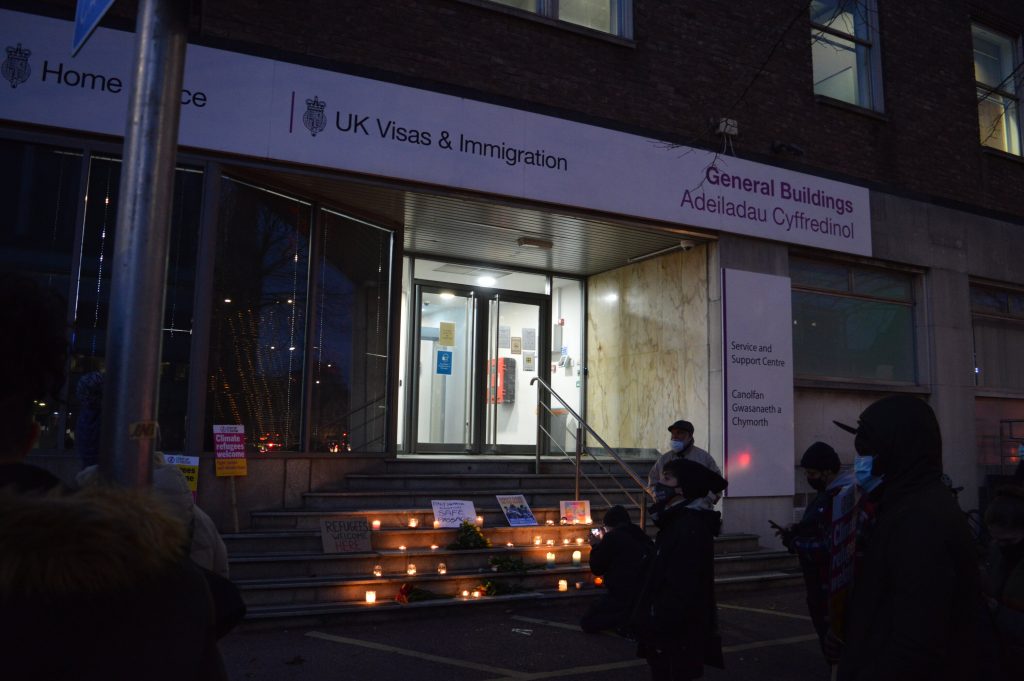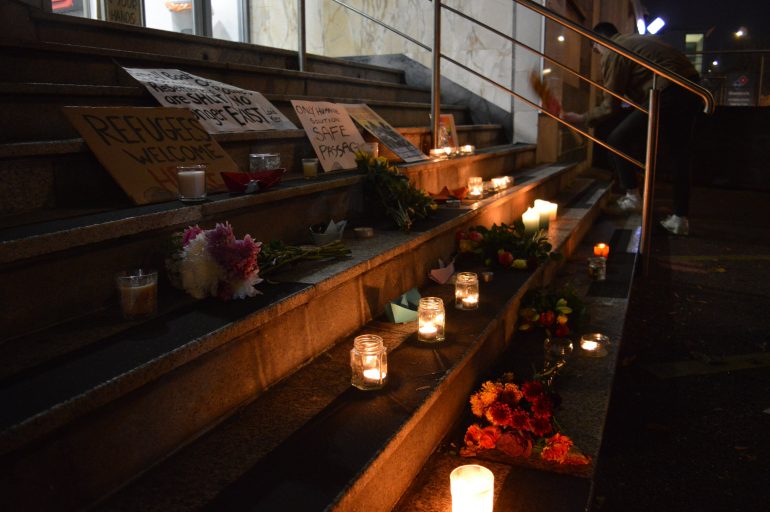Candles and flowers were placed on the steps of the Home Office building in Cardiff
A CANDLELIT vigil for the refugees who died in the English Channel last week was held outside the Home Office building in Cardiff.
About 50 people attended the vigil outside the building on Newport Road on Sunday evening.
Last Wednesday 27 people, including three children, died when their dinghy capsized while making the crossing from France to the UK – a common route for asylum seekers.
Lauren Caley and Tim Owen said they came to the vigil because they had both volunteered with refugees in Calais. Mr Owen had returned from France just a few days before the disaster in the Channel and said he was worried about people he had met there.
He said: “I’d been in the Dunkirk camp where I think a lot of the people who died were from. So, on a personal level, having seen those people first-hand and then next week, 27 of them aren’t there any more, it’s heart-breaking.”
Ms Caley said: “Things don’t change, do they? It’s always heart-breaking every time this happens and you just feel like you have to do something, however little impact it may have.”
She said that until safe and legal routes were established, dangerous crossings like this would continue to be some people’s only option.

Attendees lit candles and placed flowers and signs on the steps of the Home Office building, the government department that several of the people who made speeches at the vigil hold responsible for the tragedy. Speakers at the vigil included activists and people who work with refugees.
Maggie Morgan, a teacher and chair of the Cardiff Palestine Solidarity Campaign, spoke about having young unaccompanied asylum seekers and refugee children in her classes.
“I am humbled and in awe of how hard they worked to make something of their life when they got to this country,” she said. She then led the crowd in a shout of “Croeso!” for new refugees in Wales.
Yayhi Al-Faifi, 61, spoke about his own experience of seeking asylum in the UK, having had to leave Saudi Arabia after organising a trade union, and receiving £70 a week for a family of six.
He said: “I wouldn’t change my country for this kind of life if I had another choice.”
He also criticised the British government’s support of Saudi Arabia and said: “They want to stop the refugees. The only way to do that is to stop the war and the corruption in the Middle East and all kinds of tyranny.”
Other speakers included an asylum lawyer, a member of Stop the War Cardiff, and Tia Roach, 19, a member of police monitoring group Y Pantherod who was involved in organising the vigil. Anyone attending the vigil was also invited to speak if they wanted to.
Laura Phelps, 42, who teaches English with Cardiff-based refugee charity Oasis, decided to speak on the spot. In a short but emotive speech she said: “The line is so thin between these people I work with and laugh with every day being dead or being here.”
Several drivers on Newport Road beeped their horns in support but one passer-by shouted and swore at the vigil. She was immediately spoken to by police who said that they had given her “a word of advice.”
“That just shows the reality and it shows that we have so much more to do,” said Ms Roach.



